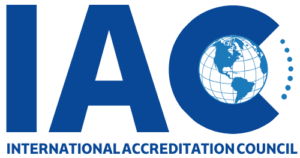ISO 27001
ISO/IEC 27001 is an international standard that specifies the requirements for establishing, implementing, maintaining, and continually improving an Information Security Management System (ISMS). The full title of the standard is ISO/IEC 27001:2013, “Information technology — Security techniques — Information security management systems — Requirements.”
Key elements and requirements of ISO/IEC 27001 include:
Scope: ISO/IEC 27001 is applicable to any organization, regardless of its size or industry, that processes, stores, or transmits information. The standard is technology-neutral and is designed to be adaptable to different organizational contexts.
Risk Management: Organizations are required to conduct a systematic risk assessment and treatment process to identify and address information security risks. This includes assessing the impact of potential security incidents and implementing controls to mitigate risks.
ISMS Policy: Top management must establish an Information Security Management System (ISMS) policy that provides a framework for setting information security objectives and demonstrating a commitment to information security.
Roles and Responsibilities: The standard emphasizes the need for clearly defined roles and responsibilities for information security within the organization, including the appointment of an Information Security Officer.
Asset Management: Organizations are required to inventory and classify information assets based on their criticality and sensitivity. This includes ensuring that assets are appropriately protected.
Access Control: ISO/IEC 27001 outlines requirements for controlling access to information and information processing facilities. This includes user access management, password policies, and monitoring access activities.
Cryptographic Controls: The standard includes requirements for the use of cryptographic mechanisms to protect the confidentiality, integrity, and authenticity of information.
Incident Management: Organizations must establish and maintain an incident management process to promptly respond to and manage information security incidents.
Monitoring and Measurement: ISO/IEC 27001 requires organizations to monitor and measure the performance of the ISMS. This includes conducting internal audits and management reviews.
Continual Improvement: Organizations are encouraged to continually improve the effectiveness of the ISMS by addressing nonconformities, conducting corrective actions, and setting objectives for improvement.
ISO/IEC 27001 certification is often sought by organizations to demonstrate their commitment to information security and to provide assurance to customers, partners, and stakeholders. Certification involves an assessment by accredited certification bodies to ensure compliance with the standard’s requirements.
ISO/IEC 27001 is part of the ISO/IEC 27000 series, which includes additional standards and guidelines related to information security management.
